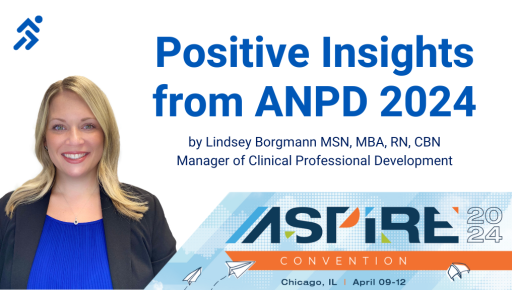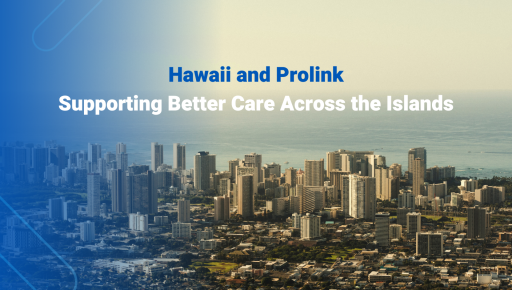Nursing is an excellent career choice. Not only are nursing jobs stable and rewarding, but nursing roles of all types are in high demand. As a nurse, you have your choice of working in a hospital, private doctor’s office, or long-term care facility. And you have the privilege of working directly with patients to assist them in leading better, healthier, and longer lives. This makes the job rewarding, and the pay certainly helps. Nurses get paid higher than the national average. Nurses earn around $75,000 per year, with pay varying according to state, facility, and the nurse’s specialty.
To become a nurse, you need to satisfy the education and certification requirements of your state. Getting the proper education is the most important step. Here is a breakdown of the various degrees possible that will start you on your trajectory to becoming a career nurse.
Nursing Degrees Explained
Certified Nursing Assistant (CNA)
The certified nursing assistant program is a fast way to qualify as an entry-level nurse. This non-degree diploma is offered at vocational schools and community colleges nationwide. Most programs require 75 hours of education and 16 hours of supervised clinical training for a total of around 12 weeks’ time. Online options are available but clinical hours will have to be performed in person at pre-approved locations.
Certified nursing assistants are tasked with helping patients with daily activities. You might transfer patients to and from their beds, as well as bathe and feed them as needed. CNAs are also tasked with recording vital signs and patient data, while communicating with family members.
CNAs can expect to earn an annual average salary of $30,720 with higher earnings possible with specialization in fields like geriatrics or psychiatry. CNAs work in hospitals, continuing care retirement communities, assisted living facilities, and in patients’ homes as part of home healthcare services.
Licensed Practical Nurse (LPN)
A licensed practical nurse (LPN) certificate is also a non-degree program. The specialty certificate is offered at vocational and community colleges around the country. The LPN certificate is good for those who want to enter nursing without the time and expenditure needed to earn a college degree. The entire program takes around 12 months to complete, depending on the state. Some states require a number of clinical hours to meet the certification requirements. The hours needed can range from 7 to 24 months in duration. Some hospitals host their own LPN programs. Texas and California medical facilities refer to this role as a licensed vocational nurse (LVN).
As an LPN, you could be taking vital signs and changing wounds or inserting catheters. You would also assist with sample collections, tests, and various other procedures. Your ultimate role is to provide care and report on patient conditions, while improving patient comfort.
The LPN program covers all the basics from the CNA program and requires the LPN to attain a level of mastery over topics like anatomy, nutrition, physiology, and emergency care. LPNs earn an average yearly salary of $48,254. LPNs can specialize to advance their career and salary. A few specialties within the LPN program include pharmacology, long-term care, breastfeeding support, and IV therapy.
Associate Degree in Nursing (ADN)
An associate degree in nursing is the minimum degree requirement for becoming a registered nurse (RN). This nursing path is a good choice if you want to become an RN without the commitment of a four-year nursing program. Most community colleges and some four-year degree institutions offer ADN programs. The curriculum, included with an ADN program, places a heavy focus on science, anatomy, chemistry, biology, and physiology. The skills you learn will help you perform duties like assisting doctors during exams and helping surgeons during procedures. Nurses also dress wounds, run diagnostic tests, and may even supervise LPNs and CNAs. The associate’s program takes around two years to complete.
Once you have attained RN status, you are then qualified to work in most nursing positions. You can expect these roles to involve critical patient care and physician assistance. As an ADN, you may find yourself working in a hospital, physician’s office, government agency, or in an educator’s capacity making around $77,460 annually.
Bachelor of Science in Nursing (BSN)
A bachelor of science in nursing (BSN) is a four-year degree program. Many employers are requesting RNs with BSN degrees. A BSN is a good investment into your nursing career if you have the time and financial resources to withstand the four year commitment. You can also go on to finish your master’s degree to begin working as an advanced practice nurse.
The curriculum consists of classroom training followed by on-site clinical training. The subjects of study include laboratory testing, patient care, designing treatment care, and how to assist with surgery.
Some schools offer programs where you can earn a BSN in a particular specialty of nursing. Examples include infectious disease, acute care, psychiatry, geriatrics, and pediatrics. Obtaining a BSN (and completing the nursing exam to attain your RN) puts you in a position to earn well above the national average. BSN degree holders can work in a variety of nursing positions, even supervisory roles, which is a luxury typically not afforded to holders of an ADN. RNs with a bachelor of science in nursing can work as forensic nurses, legal nurse consultants, public health nurses, case managers, home health nurses, and mid-level nurse administrators. RNs with a BSN earn an average annual salary of $77,460 with many specialty nurses, such as nurse anesthetists, earning upwards of six figures.
LPN-RN Bridge Programs for Attaining Your BSN Quickly
If you already hold an LPN certificate or ADN degree, bridge programs exist that give you credit for your previous education and experience. This lets you accelerate your BSN degree, so you can start working as a higher-paid nurse in less time.
Second Degree BSN for Non-Nursing Degree Holders
For degree holders in another discipline, such as accounting, a second degree BSN program can accelerate your BSN degree based on credit transfers from your existing education. This degree program also shortens your time to working as an RN with a BSN degree.
Master of Science in Nursing (MSN)
A master of science in nursing is a graduate program for nurses who wish to specialize in certain fields. You would then become an Advanced Practice Registered Nurse or APRN. While the RN program encompasses a wide range of topics, the MSN program is focused on a particular field, such as renal care or intensive care. MSN programs also cover advanced nursing topics like healthcare policy, research, management, and leadership.
A master of science in nursing can be obtained in a couple of different ways. If you already have an RN license with an associate degree, some schools let you enter the MSN program straight away. This would help you attain an advanced degree faster than it would take you to finish the BSN first before proceeding to the master degree program.
The BSN-to-MSN is the traditional method for attaining an advanced nursing degree. The requirement to enter the program is a bachelor of science of nursing degree and takes around two years to complete.
Once you have attained a master degree, you can start work as a nurse practitioner, certified nurse midwife, certified nurse anesthetist, or clinical nurse specialist. These are among some of the highest-paying jobs in nursing with average salaries ranging from $77,460 to $181,000 or more.
Joint Master Degrees in Nursing
Entering a joint or dual master degree program helps you attain an MSN and complementary nursing degree in less time than it would take you to complete two separate programs. The program is designed for nurses who wish to adopt a leadership position in their field. Only the most serious students are recommended to join the joint master degree program. The curriculum consists of two demanding course loads, which requires arduous effort for up to three years of study.
A joint degree lets you advance to higher positions, like a hospital executive. The curriculum largely focuses on the process for making important decisions related to healthcare education and the management of various healthcare facilities.
A joint master degree can earn you upward of $100,000 annually or more, which is the average salary for medical and health services managers.
Doctoral Degrees in Nursing
Obtaining a doctorate in nursing can be accomplished in one of two ways: you can earn a doctor of nursing practice or Ph.D. in nursing.
The DNP degree takes two years to complete and is ideal for nurses who wish to work in clinical settings and take on supervisory roles. Obtaining a DNP gives you access to some of the higher paying nursing jobs.
The qualifications for entering a DNP program include an associate or bachelor's degree in nursing. Some DNP programs require their applicants to have some nursing experience along with an active RN license.
The nursing Ph.D. program takes four to seven years to complete. The curriculum of the Ph.D. nursing program is more academic in nature and serves individuals who want to teach at the postsecondary level or engage in research.
Earning a Ph.D. in nursing gives you the knowledge necessary to educate others at the university level and typically comes with an annual average salary of $83,240. You might also conduct research or pursue high-level roles as an executive or administrator.
Where Should You Begin?
There are many different types of nurses. You have registered nurses, cardiac nurses, critical care nurses, and family nurse practitioners. With so many options and nursing specialties to choose from, you only have to pick the career choice that seems right for you. Once you have an idea of which type of nurse you would like to become, the next step is to start pursuing your education. At Prolink, we can help you fast-track your education so you can begin working as a nurse right away. Apply today to ask about the nursing education you need to start your nursing career.








